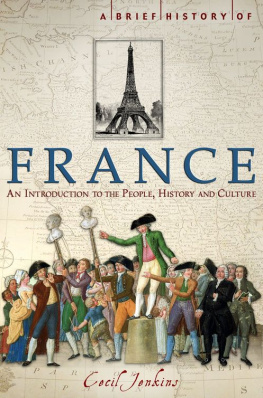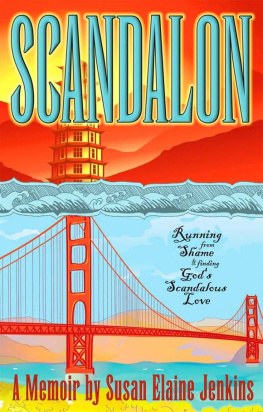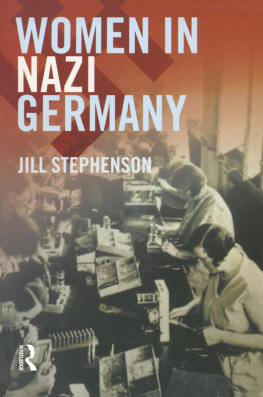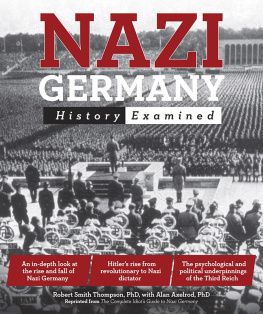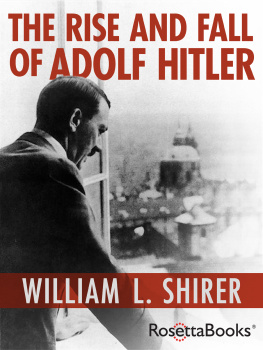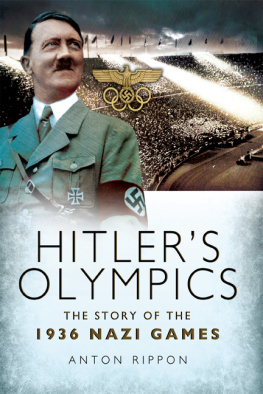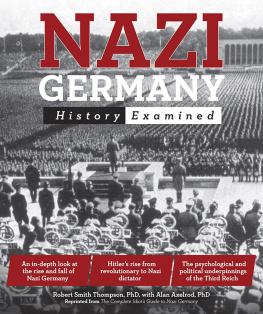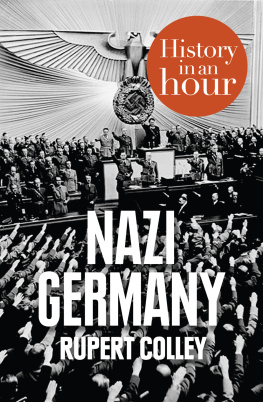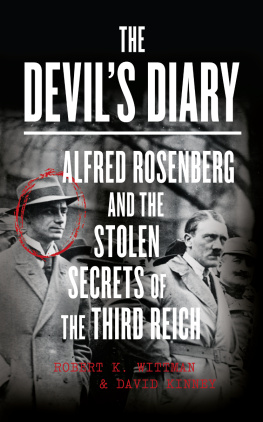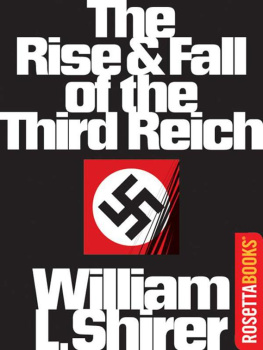Thank you for downloading this book, The Nazi Rise and Fall .
In November 1918, World War One came to an end. For many, especially in America, the war was The War to End All Wars, as President Woodrow Wilson had claimed. In order to make sure that this was the case, Wilson had drawn up Fourteen Points to add to any treaty that would officially end the war. Many people hoped that these Points would provide a pathway for a new peaceful future. It was a pipe dream.
There were millions dead after the war. It had been the most costly conflict up to that time. Billions of dollars in damage had been inflicted. Anger and the desire for revenge was underneath the war weariness present in many countries, even the victors. The large empires of Europe, like Austria-Hungary and the Ottoman, were breaking up into smaller nations, a process which would be formalized in the Versailles Treaty which ended the war. Russia was involved in a bloody civil war. Ethnic violence was taking place throughout much of the continent as borders were redrawn.
With the end of Austria-Hungary and the Ottoman Empire, the only nation left from the central powers was its strongest member, Germany. Germany had been the nation that caused the most damage to the Allies during the war and occupied the most territory. Many in France and Britain blamed Germany for starting the war. Though the German government could have possibly put a halt on Austria's actions against Serbia, which began the war, German did not start the conflict. As a matter of fact, all of the major powers of Europe had played a role. When the war ended, Germany was the only one left, and the amount of damage it had inflicted caused the Allied powers of Britain and France to seek harsh terms...
Please feel free to share this book with your friends and family. Please also take the time to write a short review on Amazon to share your thoughts.
Chapter 1: 1919-1933
In Germany, the defeat was a shock to many. Brought up in a military culture, and having been told throughout the war by a controlled press that victory was just always right around the corner, the German public could not fathom their nations defeat. Even some in the army, who did not have the bigger strategic picture (Germany having no food left being one example), thought Germany should continue fighting. Germany's offer of armistice happened at the urging of the military high command, who knew the army had no fight left in them, knew they would not be able to handle to new Allied strength that had come with American entry into the war, and knew the troops were on the verge of mutiny.
However, when the Germans offered a cease fire, they had negotiations in mind. They thought it was still possible to come to what they considered a fair end to the war, with the interests of all sides considered. You never negotiate from weakness.
The Allies did not have negotiation in mind. The British and particularly the French (whose country had absorbed the most damage) were not interested in coming to terms with Germany. They were interested in Germany accepting their terms, or else. Having no other choice, the Germans accepted the Treaty of Versailles which ended WWI.
President Wilson, who had insisted on having his Fourteen Points included in some of the treaty language, was under the illusion that Britain and France would abide by them. The leaders of France and Britain, who found President Wilson to be pedantic and nave, had no intention of treaty Germany equally. They forced Germany to make many concessions, the worst of which were the payment of massive reparations as payment for the damage caused by the war, the acceptance of the blame for starting the war, and a limitation on the size of their armed forces, which had always played a major role in German life.
Many people, historians and others, had made out the terms of the Versailles Treaty to be especially harsh and contributing to the rise of Hitler, and there is certainly an element of truth in this. However, it should be remembered that when Russia dropped out of the war with Germany, the Germans forced a treaty on the Russians that was even harsher than Versailles. German plans for a treaty to end the war with France and England were just as harsh.
Still, the treaty was harsh. The reparations demanded were absolutely outrageous, especially for a country bankrupted by the war effort. The limit on the size of the German armed forces (though, in hindsight, probably reasonable) caused great resentment in Germany. Germany was forced to give up its overseas colonies and allow the Rhineland to be occupied as insurance against the payment of reparations, and much else. The result was a weakened Germany, but one which would eventually want revenge.
Germany was a mess after WWI. Economic hard times ensued, the country looked and felt defeated, there was a massive hyperinflation in the 1920s which totally destroyed the savings of millions, and there was virtual civil war raging in the streets between political parties of the right and left. This fighting rise and fell with the times, but was always present throughout the 20s and the first two years of the 30s, and brought with it a desire on the part of Germans for someone to bring law and order back to Germany. The changes brought on by the war, and of the 20 th century in general, were too much for the Germany of the post-WWI period, and many longed for a simpler time.
Under all of this was a racism and anti-Semitism that grew with every bit of bad news. Since the arrival of the Jews centuries before, there had always been some anti-Semitism in Germany, as there had been throughout Europe. With the Reformation in the 1500s, it had gotten worse in Germany, and had remained at a present but not dominant level in the country until the late 1800s and then the defeat of Germany in WWI. In the late 19 th century, the great age of scientific development left no part of society untouched. One of these areas was anthropology. At the time, certain pseudo-scientific ideas about race gained popularity, not only in Germany, but in Europe and America.
People looked out at the world and saw the European white race dominating the globe militarily, politically, economically, and socially. To them, this was proof of white, Christian superiority. At this time, anti-Semitic feeling was growing in Germany and elsewhere. After the defeat of WWI, many in German asked themselves, How, when our armies were still on foreign soil when the war ended, did we get defeated? To many, the answer came in two forms, sometimes meshed into one: the Jews and the Communists (which, it was believed by more than a few, was a Jewish idea), working for an internationalist idea that could not stomach a strong Germany, stabbed the German army in the back from within.
Germany, despite the rise of a liberal government and progressive political parties after WWI, was still a very conservative country, and many of the conservative political parties which began all over Germany after WWI had varying degrees of racism about them. None more so than the German Workers Party (the DAP, for Deutsche Arbeiter Partei) of Anton Drexler in Munich, which railed against the Jews as the evil of the world, and the people to blame for Germany's misery.



